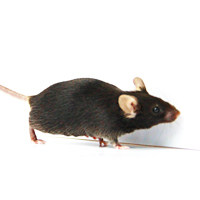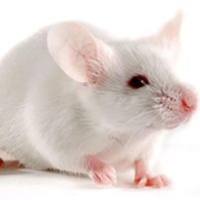【进展|热点】Nature:大西洋鳕鱼基因组序列揭示一独特免疫系统
丁香园论坛
1546
The sequencing of the Atlantic cod (Gadus morhua) genome has revealed an immune system never seen before in jawed vertebrates. The finding could be used to develop better vaccines and to improve disease management in farmed cod.
大西洋鳕鱼(Gadus Morhua)基因组的序列揭示先前在鄂脊椎动物从未存在的一个免疫系统。这一发现可被用于开发更好的疫苗并且在鳕鱼养殖场控制鳕鱼少得病。
Kjetill Jakobsen, of the University of Oslo, and his colleagues found that Atlantic cod have lost the genes for three important components of the adaptive immune system, which fights pathogens and creates the immune memory that gives resistance to infection.
奥斯陆大学的Kjetill Jakobsen及其同事发现大西洋鳕鱼丢失了适应获得性免疫系统的三个重要成分的基因,这些基因可战胜病原体并且获得可对疾病感染进行抵抗的免疫记忆。
One missing component is called the major histocompatibility complex (MHC) II, which presents fragments of bacteria and other pathogens to cells in the immune system to trigger a wider response. Cod also lack the gene for the proteins CD4, which interacts with MHC II, and invariant chain, which is involved in making and transporting MHC II.
丢失的一个基因成分被称为主要组织相容复合物(MHC)II,其可呈递细菌或者其他病原体的片段给免疫系统的细胞从而诱发更强烈的反应。鳕鱼也缺少CD4基因,该基因可与MHCII相互作用,并且丢失恒定链,其参与生产和运输MHCII。
"MHC II is something that you can't really lose without suffering from some severe illness", says Jakobsen. Mice genetically engineered to lack MHC II have immune defects.
Jakobsen说“MHCII是一种你不能真正丢失的,否则将患一些严重疾病”。缺失MHCII的基因工程小鼠患有免疫缺陷。
The finding "is quite unexpected" says Sebastian Fugmann, a molecular immunologist at the National Institute on Aging in Baltimore, Maryland. "This is the most dramatic example reported thus far of the plasticity of the adaptive immune system in jawed vertebrates on an evolutionary timescale."
马里兰巴尔的摩的国立老年研究所的分子免疫学家,Sebastian Fugmann说“这一发现十分意外”。“这是在一个进化时间表上鄂脊椎动物免疫系统可塑性截至目前有报道的最戏剧性的例子”。
Genetic make-up基因构成
One way that cod compensate for their missing MHC II is by having ten times more genes than other vertebrates, including related fish species and humans, for another component of the immune system, called MHC I. MHC I takes proteins from within the cell, and displays them on the cell surface. If the immune system detects any foreign bodies, such as viral proteins, it destroys the infected cell.
鳕鱼补偿他们丢失MHCII的一种方法是通过拥有比其它脊椎动物,包括相近的鱼类和人类,多出十倍的基因,至于免疫系统被称为MHCI的其它成分,MHCI从细胞内获取蛋白,并且将其递呈在细胞表面。如果免疫系统发现任何外源性抗原,例如病毒蛋白,则会摧毁感染细胞。
Jakobsen and his team found that cod also rely more heavily than other vertebrates on molecules called Toll-like receptors. These molecules, which recognize bacterial and viral invaders, are part of the more evolutionarily ancient innate immune system.
Jakobsen及其研究组发现鳕鱼比其它脊椎动物更依赖被称为Toll-like受体的分子。这些分子,可识别入侵的细菌和病毒,是进化的古老的先天免疫系统的一部分。
The Atlantic cod has long been seen as a potentially important aquaculture species, but infections, such as from the bacteriumFrancisella noatunensis, are a major barrier to cod farming2. The findings could allow targeted vaccine development, aiding disease management and the domestication of Atlantic cod.
大西洋鳕鱼已经被视为是一个潜在且重要的水产养殖品种,但感染,例如来自bacteriumFrancisella noatunensis的感染,是鳕鱼养殖的一个主要障碍。这些发现能够研发针对性的疫苗,进行疾病治疗并且饲养鳕鱼。
But it may not be that simple, says Jakobsen. "Most vaccines are directed towards the function of MHC II. So this may imply that we have to think differently when making vaccines for cod compared with, for example, salmon," he says.
但可能并非那么简单,Jakobsen说。“绝大多数疫苗是直接依靠MHCII的功能”。所以这可能暗示我们,例如相比三文鱼,制备鳕鱼疫苗不得不采用不同的思路。
The finding could also challenge our understanding of the evolution and flexibility of the vertebrate immune system.
这一发现也能挑战我们对于进化的理解和脊椎动物免疫系统的灵活性。
"The fact that we see cod lacking MHC class II and actually doing well without it opens our eyes towards understanding human immunity", says Jakobsen. All the other genes in the MHC II pathway are present, he says, suggesting that cod may have found other uses for these genes.
“事实是我们发现鳕鱼没有MHCII类基因并且生活的很好,这使我们重新认识人类免疫系统”,Jakobsen说。他说,MHCII路径的所有其它基因,表明鳕鱼可能已经发现这些基因的其它用处。
The sequencing of related species may reveal similar adaptations. "It would be really interesting to look at the comparative genomics of those species closest to cod," says Jakobsen. He speculates that cod may owe their unusual immune system to having evolved in deep waters with a very specific set of pathogens. A similar system, with expanded MHC I and reduced MHC II, has evolved independently in the amphibian axolotl (Ambystoma mexicanum).
相近鱼类的测序可能揭示相似的适应性。Jakobsen说“与鳕鱼相近的这些鱼类的比较基因组研究将非常有趣”。他推断鳕鱼可能拥有他们自己的特异免疫系统与一个特异的病原体一起在深海进化。一个类似的系统,扩大MHCI并且减弱MHCII,这在两栖动物蝾(Ambystoma mexicanum)已经独立进化。
Not everyone is surprised by the finding. "It's old news with a proof at molecular level," says Ioanna Katsiadaki, a fish endocrinologist at the Centre for Environment, Fisheries & Aquaculture Science in Weymouth, UK. "We knew that cod respond poorly in terms of antibodies many years back and the impaired MHC class II system has been suggested as the reason. So the paper provides only a confirmation of what has been known for years."
并不是每个人都对这一发现感到惊讶。Ioanna Katsiadaki,位于英国Weymouth的渔业及水产养殖的环境中心的一名鱼类内分泌学家说,“这只是一个在分子水平的旧新闻”。“我们知道许多年前就已经知道鳕鱼的抗体反应较差,因此认为MHCII系统受损。所以这篇文章仅是对若干年前已经的事情进行了确认”
原文链接:http://www.nature.com/nature/journal/vaop/ncurrent/full/nature10342.html
大西洋鳕鱼(Gadus Morhua)基因组的序列揭示先前在鄂脊椎动物从未存在的一个免疫系统。这一发现可被用于开发更好的疫苗并且在鳕鱼养殖场控制鳕鱼少得病。
Kjetill Jakobsen, of the University of Oslo, and his colleagues found that Atlantic cod have lost the genes for three important components of the adaptive immune system, which fights pathogens and creates the immune memory that gives resistance to infection.
奥斯陆大学的Kjetill Jakobsen及其同事发现大西洋鳕鱼丢失了适应获得性免疫系统的三个重要成分的基因,这些基因可战胜病原体并且获得可对疾病感染进行抵抗的免疫记忆。
One missing component is called the major histocompatibility complex (MHC) II, which presents fragments of bacteria and other pathogens to cells in the immune system to trigger a wider response. Cod also lack the gene for the proteins CD4, which interacts with MHC II, and invariant chain, which is involved in making and transporting MHC II.
丢失的一个基因成分被称为主要组织相容复合物(MHC)II,其可呈递细菌或者其他病原体的片段给免疫系统的细胞从而诱发更强烈的反应。鳕鱼也缺少CD4基因,该基因可与MHCII相互作用,并且丢失恒定链,其参与生产和运输MHCII。
"MHC II is something that you can't really lose without suffering from some severe illness", says Jakobsen. Mice genetically engineered to lack MHC II have immune defects.
Jakobsen说“MHCII是一种你不能真正丢失的,否则将患一些严重疾病”。缺失MHCII的基因工程小鼠患有免疫缺陷。
The finding "is quite unexpected" says Sebastian Fugmann, a molecular immunologist at the National Institute on Aging in Baltimore, Maryland. "This is the most dramatic example reported thus far of the plasticity of the adaptive immune system in jawed vertebrates on an evolutionary timescale."
马里兰巴尔的摩的国立老年研究所的分子免疫学家,Sebastian Fugmann说“这一发现十分意外”。“这是在一个进化时间表上鄂脊椎动物免疫系统可塑性截至目前有报道的最戏剧性的例子”。
Genetic make-up基因构成
One way that cod compensate for their missing MHC II is by having ten times more genes than other vertebrates, including related fish species and humans, for another component of the immune system, called MHC I. MHC I takes proteins from within the cell, and displays them on the cell surface. If the immune system detects any foreign bodies, such as viral proteins, it destroys the infected cell.
鳕鱼补偿他们丢失MHCII的一种方法是通过拥有比其它脊椎动物,包括相近的鱼类和人类,多出十倍的基因,至于免疫系统被称为MHCI的其它成分,MHCI从细胞内获取蛋白,并且将其递呈在细胞表面。如果免疫系统发现任何外源性抗原,例如病毒蛋白,则会摧毁感染细胞。
Jakobsen and his team found that cod also rely more heavily than other vertebrates on molecules called Toll-like receptors. These molecules, which recognize bacterial and viral invaders, are part of the more evolutionarily ancient innate immune system.
Jakobsen及其研究组发现鳕鱼比其它脊椎动物更依赖被称为Toll-like受体的分子。这些分子,可识别入侵的细菌和病毒,是进化的古老的先天免疫系统的一部分。
The Atlantic cod has long been seen as a potentially important aquaculture species, but infections, such as from the bacteriumFrancisella noatunensis, are a major barrier to cod farming2. The findings could allow targeted vaccine development, aiding disease management and the domestication of Atlantic cod.
大西洋鳕鱼已经被视为是一个潜在且重要的水产养殖品种,但感染,例如来自bacteriumFrancisella noatunensis的感染,是鳕鱼养殖的一个主要障碍。这些发现能够研发针对性的疫苗,进行疾病治疗并且饲养鳕鱼。
But it may not be that simple, says Jakobsen. "Most vaccines are directed towards the function of MHC II. So this may imply that we have to think differently when making vaccines for cod compared with, for example, salmon," he says.
但可能并非那么简单,Jakobsen说。“绝大多数疫苗是直接依靠MHCII的功能”。所以这可能暗示我们,例如相比三文鱼,制备鳕鱼疫苗不得不采用不同的思路。
The finding could also challenge our understanding of the evolution and flexibility of the vertebrate immune system.
这一发现也能挑战我们对于进化的理解和脊椎动物免疫系统的灵活性。
"The fact that we see cod lacking MHC class II and actually doing well without it opens our eyes towards understanding human immunity", says Jakobsen. All the other genes in the MHC II pathway are present, he says, suggesting that cod may have found other uses for these genes.
“事实是我们发现鳕鱼没有MHCII类基因并且生活的很好,这使我们重新认识人类免疫系统”,Jakobsen说。他说,MHCII路径的所有其它基因,表明鳕鱼可能已经发现这些基因的其它用处。
The sequencing of related species may reveal similar adaptations. "It would be really interesting to look at the comparative genomics of those species closest to cod," says Jakobsen. He speculates that cod may owe their unusual immune system to having evolved in deep waters with a very specific set of pathogens. A similar system, with expanded MHC I and reduced MHC II, has evolved independently in the amphibian axolotl (Ambystoma mexicanum).
相近鱼类的测序可能揭示相似的适应性。Jakobsen说“与鳕鱼相近的这些鱼类的比较基因组研究将非常有趣”。他推断鳕鱼可能拥有他们自己的特异免疫系统与一个特异的病原体一起在深海进化。一个类似的系统,扩大MHCI并且减弱MHCII,这在两栖动物蝾(Ambystoma mexicanum)已经独立进化。
Not everyone is surprised by the finding. "It's old news with a proof at molecular level," says Ioanna Katsiadaki, a fish endocrinologist at the Centre for Environment, Fisheries & Aquaculture Science in Weymouth, UK. "We knew that cod respond poorly in terms of antibodies many years back and the impaired MHC class II system has been suggested as the reason. So the paper provides only a confirmation of what has been known for years."
并不是每个人都对这一发现感到惊讶。Ioanna Katsiadaki,位于英国Weymouth的渔业及水产养殖的环境中心的一名鱼类内分泌学家说,“这只是一个在分子水平的旧新闻”。“我们知道许多年前就已经知道鳕鱼的抗体反应较差,因此认为MHCII系统受损。所以这篇文章仅是对若干年前已经的事情进行了确认”
原文链接:http://www.nature.com/nature/journal/vaop/ncurrent/full/nature10342.html







